J-School commencement ceremony on Friday, May 10, at Mizzou Arena
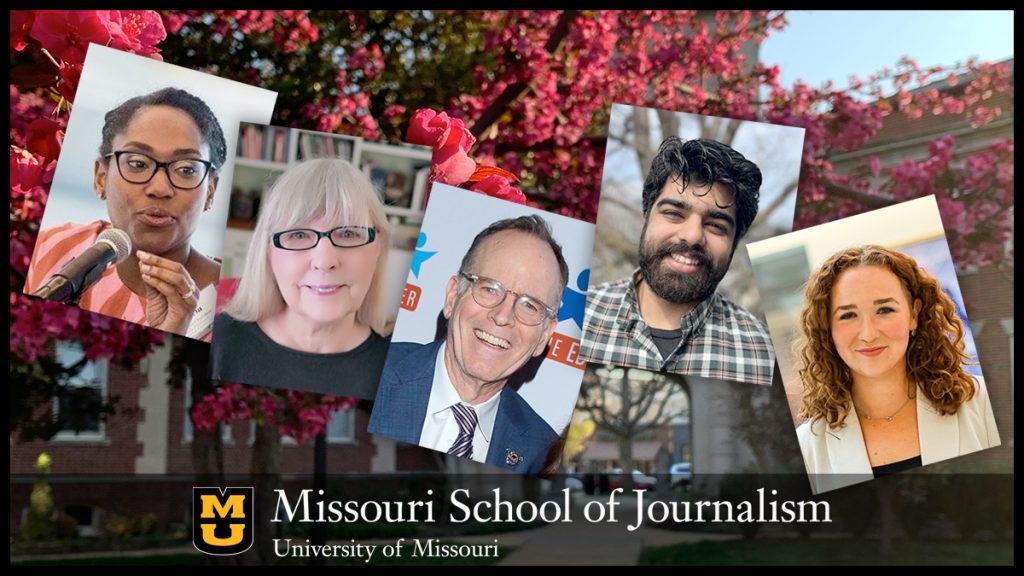
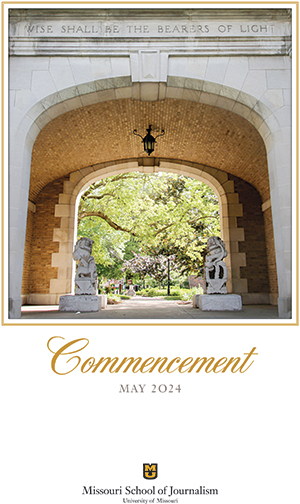
The Missouri School of Journalism will recognize May and August graduates at its 7 p.m. commencement ceremony on Friday, May 10, at Mizzou Arena on the University of Missouri campus. Seating is open and no tickets are required. Guests can enter the arena for seating at 6:30 p.m.
Graduate degrees will be awarded to two doctoral candidates and 33 master’s students.
Of the 380 undergraduates, 43 percent focused on some aspect of journalism; 57 percent on strategic communication.
The top 10 percent of the School’s graduates will be inducted into Kappa Tau Alpha, a journalism honor society founded at the School of Journalism in 1910. The KTA reception will be held from 11 a.m. to noon on Friday, May 10, in 88 Gannett Hall, Fisher Auditorium. The new members of Kappa Tau Alpha are:
- Doctor of Philosophy: Cory MacNeil, Indah Setiawati
- Master of Arts: Wei Hua, Sam O’Keefe, Laura Shimel, Megan Sundberg
- Bachelor of Journalism: Katherine Armbruster, Kaitlyn Bailey, Caroline Briscoe, Caroline Chisholm, Ashleigh Cochran, Megan Cooper, Maggie Courtney, Kaylin Hellyer, Ben Henschel, Emily Hood, Jonathan Jain, Yilan Jin, Ceilidh Kern, Zoe Krause, Ethan Levy, Claudia Linder, Chole Lykken, Madison Meyers, MJ Montgomery, Amanda Nothstine, Allison Ortmann, Faith Quist, Shanley Silvey, Alexandra Sohl, Madelyn Stout, Bailey Stover, Chloe Tabing, Emma Tacchia, Elizabeth Trower, Anastasia Tryfonopoulos, Kortay Vincent, Gianluca Vitale, Emily Wilson, Shiyu Yuan
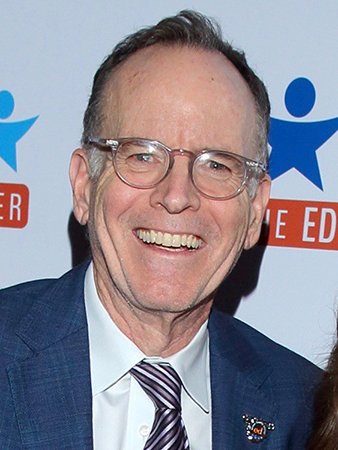
The alumni speaker will be Jonathan Murray, BJ ’77. Widely credited with inventing the modern reality television genre with MTV’s “The Real World” in 1992, Murray has created and executive produced some of the industry’s most innovative, unscripted, entertainment television programs, including A&E’s Emmy Award winning “Born This Way,“ and he has earned additional Emmy Awards for the syndicated “Starting Over,” HBO’s “Autism: The Musical” and “Valerie’s Home Cooking” on Food Network.
In 1987, Murray partnered with Mary-Ellis Bunim to form Bunim-Murray Productions, which in addition to “The Real World,” went on to produce “Keeping Up with The Kardashians,” “Project Runway” and other popular unscripted programs. The company has also launched several critically acclaimed documentaries through BMP Films since 2007.
Murray serves as vice chairman of The Television Academy Foundation and on the board of the Local Journalism Project, a non-profit that supports the journalistic efforts of The Provincetown Independent newspaper. In 2012, he was inducted into the Television Academy Hall of Fame.
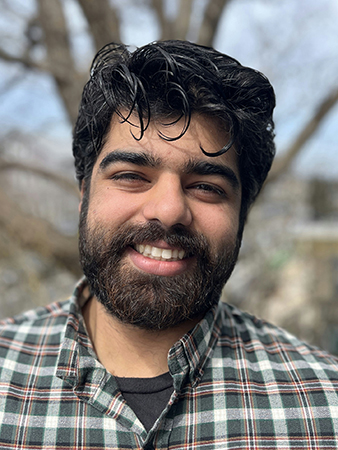
The master of ceremonies will be Harshawn Singh Ratanpal, who is graduating with a bachelor’s degrees in journalism and economics. Originally from San Diego, Calif., Ratanpal has a passion for finding and writing stories that report the truth, hold power accountable and help people debate and appreciate their differences. He knew he would attend Mizzou since he was in the 6th grade, and he’s thrilled to continue working on campus as a KBIA producer through Report for America, where he covers environmental impacts on underserved communities. He attributes his success to his family’s boundless support and said he will try ceaselessly to honor the sacrifices they made and mirror the tenacity they modeled.
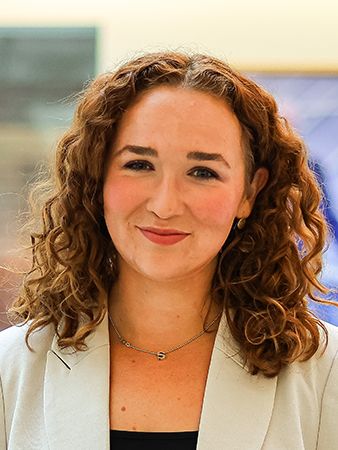
The ’thoughts of the class’ speaker is St. Louis native Shannon Worley. She is graduating with her bachelor’s degree in journalism with an emphasis in social and audience strategy, along with minors in social justice and entrepreneurship and innovation. During Worley’s time at the School, she was involved with the Maneater, Vox Magazine, the Missouri News Network and Matchbook Marketing, and she represented the school in its fellowship partnership with the National Association of Broadcasters. After graduating, she will spend the summer in Dallas, Texas as the Audience Fellow at Dallas Morning News.
Honorary degrees
Marcia Chatelain, BJ ’01, BA ’01, and Sarah Leen, BA ’74, are both being recognized with Honorary Degrees of Doctor of Humane Letters, honoris causa. Each year the university recognizes prominent individuals, whether they attended the university or not, by presenting them with honorary doctorate degree, the highest form of recognition offered by MU to persons of exceptional distinction.
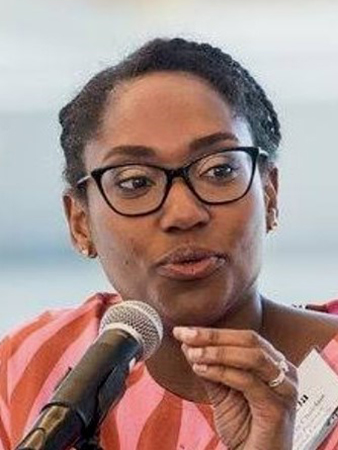
Chatelain is the Penn Presidential Compact Professor of Africana Studies at the University of Pennsylvania. Previously, she was a professor of history at Georgetown University and an assistant professor of African-American Studies at the University of Oklahoma.
Chatelain’s most recent book, Franchise: The Golden Arches in Black America, was awarded the 2021 Pulitzer Prize in History among many other honors. She is currently working on a group biography of the Black women featured at the 1963 March on Washington.
She is a Harry S. Truman Scholar, a Ford Foundation Postdoctoral Fellow, and a New America Eric and Wendy Schmidt Fellow. She holds bachelor’s degrees in journalism and religious studies from the University of Missouri, as well as a master’s degree and doctorate in American Civilization from Brown University.
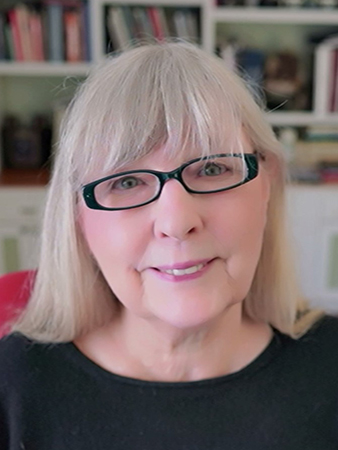
In 2013, Leen became the first female Director of Photography at National Geographic Magazine and Partners. She worked as a contributing photographer to the National Geographic magazine for 20 years before becoming a Senior Photo Editor in 2004. In 2019, she co-founded the Visual Thinking Collective, a community for independent women dedicated to supporting visual storytelling.
Leen works with individual photographers, media and publishers consulting and editing award-winning visual projects, including the 2022 and 2023 recipients of the Lucie Book Award for Independent Book. She is the photo editor of Ukraine: A War Crime by FotoEvidence, which was shortlisted for the 2023 Arles Historical Book Award, and she is the winner of the IPA Book Photographer of the Year.
She is on the Board of Advisors of the Eddie Adams Workshop, on the Board of Directors of the International League of Conservation Photographers, a member of the Lucie Awards Advisory Board, and an inductee into the Missouri Photojournalism Hall of Fame.
Shannon Worley, ‘Thoughts of the Class’
There’s no place like home.
When we first stepped foot onto this campus, that phrase likely evoked memories of the towns we grew up in, of the lives we were leaving behind. At the time, it was a little bit painful to let go of familiar locker-filled hallways and faces of people who grew up alongside us.
We entered college, this new phase in our lives, with anxiety and rusty social skills post-quarantine. We were anxious to find new friends and routines, because we know there’s no place like home.
But soon, we traded Friday Night Lights for Saturday tailgates and game days on Faurot Field. Locker hallways were replaced by silent walks under the J-school arch and before we knew it we were sitting on the quad surrounded by friends that made us feel just a bit more at ease.
We trucked through our freshman year, learning all the important things: never put an 8 am on your schedule, shower shoes are a must, plaza Indian bowls will change your life. Before we knew it, we were saying goodbye to our freshman year random roommate who transformed from a stranger to one of our closest friends. When we left Columbia for the summer, we were sad to leave the columns behind – our college town had begun to feel like home.
The next two years were filled with pitches that brought us all across Columbia, trying our best to use Adobe Suite, many many lectures in Gannet Hall and just a bit of fun. We found our favorite coffee shop downtown, learned the fight song, said goodbye to the J-Cafe and hello to the Grind, experienced the largest, longest and BEST Homecoming celebration, and became all too familiar with the Missouri Method. We pushed ourselves outside of our comfort zone to study abroad even if it was a little bit intimidating, but it gave us some of our favorite college memories. We hit “apply” for that internship we weren’t sure we were entirely qualified for, and gained an experience that helped us grow in immeasurable ways.
We were prepared for each adventure, as Missouri School of Journalism students are, taking on each task and challenge with bright eyes and determination. Yet, we still breathed a sigh of comfort knowing we had a home in mid-Missouri waiting for our return.
Now, as seniors, we can confidently say that there is no place like Columbia and no fan like a Tiger. We know the Mizzou Mafia is real and that Pizza Tree is hands down the best slice of pizza in town. Most importantly, we can say that we entered an unfamiliar place and made it our own.
While we’ll soon be heading out to find our next home, we know these past few years will stick with us. Now, when we hear “there’s no place like home,” we’ll hear chants of M-I-Z…. And say *audience- ZOU*
Jonathan Murray, BJ ’77, alumni speaker
Thank you. Congratulations to all of you! And Congratulations to the parents, friends and professors who supported you on your journey.
Today may seem like the end of something, but in fact, it’s a beginning. The good news is that you have been well prepared by the J-School for the journey ahead of you. You know how to think, to critically analyze situations, to work as a team, to track down and test information, and to create stories that not only inform but often move people to action. Those are skills that will do you well whether you stay in journalism or move into another field as I did.
Tonight, I’d like to share some of the lessons I’ve learned as I’ve grown my career from producing local news to starting my own Hollywood production company, that had me traveling the world with visionaries like billionaire Richard Branson, to learning the ins and outs of fashion from Heidi Klum and Tim Gunn, and yes, to even launching the Kardashians on an unsuspecting nation.
47 years ago, I sat where you are sitting, wondering what the next chapter of my life would bring. I didn’t have a job lined up, but thanks to the power of J-school network, aka, The Missouri Mafia, I had two job interviews lined up. One was for a summer relief news writer at WMAQ-TV in Chicago. The other was to produce the 10 o’clock news in Green Bay.
The day after graduation I loaded up my used car and headed north. I survived the news writing test in Chicago and left with the promise of a job offer. As I got to Green Bay, my car died. It was the alternator, and it would take three days to get the parts to fix it.
Bad luck. No, actually, good luck!
Instead of hanging out in my hotel room, I spent those three days in the station’s newsroom trying to make myself useful; my evenings were spent with the news team in the bar where they gathered after the 6 o’clock news to map out the 10pm show. By the end of the 3 days, I had a new alternator for my car, my first job, and a taste for whiskey!
So here’s the first lesson: Setbacks can create opportunity. My car breaking down, gave me an advantage no other applicant had to win the job – time to make an impression- and I seized it.
My next job was in Atlanta. I got the offer because someone who had worked in Green Bay had moved on to the Atlanta station and recommended me.
Lesson two: most job offers will come through colleagues – people you’ve worked with, who admire the quality of your work and most important, trust you won’t make them look bad if you get the job.
Some of the lessons I’ve learned have been from mistakes. Big mistakes. In Atlanta, working as a weekend news producer, I assigned a reporter who I thought was a total pro, to do a special 7-minute-long story on the Chattahoochee River race that was one of the city’s premiere events. It would lead the 6pm news. When it wasn’t ready, we teased it and moved it to the top of the next segment. When he missed that spot we went to weather early, and when he missed again, we moved the story until after sports. Facing a newscast that would be 7 minutes short, I finally had him come on the set and voice over what tape he had. We still came up five minutes short and ran Public Service Announcements at the end of the newscast to fill the time.
My phone was ringing when I went back to my office. It was my news director calling from home. He asked what happened. After I told him, he asked if I had learned a lesson. I said yes.
The lesson is to “not get so buried in the task that you lose sight of the bigger picture. And if in doubt about what to do, ask for help.” Satisfied I had learned the lesson, the news director, wished me good luck with the 11pm show and hung up. Nice guy! He would have been a great teacher at the J-school!
My third job was in Rochester, NY, as Executive Producer of news. I was now in charge of not only the news broadcasts, but the station’s special programming.
Weeks into the job, I learned our anchorman was fascinated by the Genesee River and its impact on Rochester. Together we talked management into letting us do a prime-time documentary about the river. It not only made the station money, it also won awards. And, more importantly for my career, my bosses saw me in a new light. Suddenly I was seen as more than a just news guy. When the head tv programming job opened at the station, I got it!
Lesson three: Don’t let anyone box you in when it comes to how you can contribute or what you can accomplish.
After two years programing the station and overseeing non-news local programming, I resigned. The reason I gave was that I wanted to go bum around Europe. The real reason was a new boss that none of us respected. Rather than complain, I gave a month’s notice and left.
Lesson Four: Don’t be afraid to walk away from a bad situation. Give proper notice, don’t bad mouth anyone, but don’t stay if your heart isn’t in it.
Months later, that Rochester station I resigned from called to ask if I’d return to be part of the management team that would replace the boss none of us respected.
Success in that job opened up an opportunity in New York to help 40 tv stations around the country buy and schedule their syndicated programming, programs like Oprah and Jeopardy.
It was my dream job! As a kid I loved TV. But I didn’t just love TV, I studied it, dreaming some day of working for one of the big three TV networks. I took the job.
A couple years later, I started coming up with my own shows, which I pitched to the Hollywood studios. And when I sold a concept for a detective series based on real police cases, I headed to Hollywood to produce the pilot episode.
While the pilot didn’t clear enough stations to get picked up, it did introduce me to Mary-Ellis Bunim, the woman who would become my partner and share billing on our company name, Bunim-Murray Productions. She was a top daytime soap producer. When you combined her scripted story know- how with my news and documentary experience, the possibilities were endless.
We didn’t know then that it would take five years of failed pilots, five years of me living in a garage apartment, five years of driving a dilapidated used car down LA’s status conscious streets, to finally break through with a new kind of television.
In 1991, MTV hired our company to produce a scripted soap about young people pursuing their dreams in New York. We developed a script and a budget. MTV loved everything about it. We thought finally, finally, this is going to be our big breakthrough.
Then they said no! The cost of producing the show was too much for a network that mostly aired free music videos.
We were crushed; …for about 24 hours. Then, remembering the lesson learned those three days in Green Bay, I realized that an opportunity had been presented to us. We knew what MTV wanted, we just had to find a way to give it to them for the right price.
The answer was an unscripted series with real young people as the stars. This was the new form of television we had been perfecting over the last five years. It would become known as Reality TV.
We flew to New York and, over breakfast at The Mayflower Hotel on Central Park West, we pitched MTV exec, Lauren Corrao our idea. Seven young adults from different worlds – black, white, privileged, poor, gay, straight – living together and pursuing their dreams in New York. Their experience of living with people different than themselves would produce conflict and that conflict would lead to growth, and that growth would be our story arc.
“MTV is all about innovation, being on the cutting edge,” we told them. “So, let’s try something completely new!” And then we added; it’ll be cheap!
Lauren started nodding, she had lived what we were pitching in her first NY apartment. By noon, MTV, had ordered a pilot.
The show was The Real World, and it revolutionized the television landscape creating modern-day-reality -tv. And it’s all because we seized an opportunity and had the experience to take advantage of it.
The Real World aired for 38 seasons, and spun off first Road Rules, and then The Challenge, a series that still airs today on MTV, CBS and Paramount Plus.
The lessons learned making these shows gave us the experience to later produce series like The Simple Life, with Paris Hilton and Nicole Ritchie, The Rebel Billionaire with Richard Branson, Project Runway, and Keeping Up with The Kardashians.
One final lesson from me, and this is probably the most important one, and certainly the one that gives me solace now that I’ve graduated out of the TV business.
When you have an opportunity through your work, to
shine a light on injustice, or create empathy and understanding, do it.
In 1994 with the casting of Pedro Zamora on The Real World we put a human face on the AIDS epidemic.
With 2007’s documentary “Autism: The Musical,” we told the stories of families trying to make a better life for their autistic kids.
And in 2015, with the series “Born This Way,” we featured young adults with Down Syndrome exceeding expectations.
More than any awards, it was seeing the positive impact of these shows that made me want to come to work each day.
I wish you all careers that fulfill you as much as mine has fulfilled me.
It’s your turn! Go out and change the world!
Marcia Chatelain, BJ ’01, BA ’01, Honorary Degree recipient
Thank you so much for this incredible honor.
On an occasion like this, you get really reflective, if not nostalgic. And as a historian, my life’s work is all about fighting the seductive and often dangerous forces of nostalgia, but as I stand here in a room with some of my former educators, and mentors, as I celebrate this moment with my best friend from college, Beth Pickens, who befriended me in the fall of 1997, I am forced to relent, something I’m not very good at, and let the bittersweet nature of this moment take form.
When people ask me about my experiences at the University of Missouri, I often turn to a seemingly incongruent set of realities. I was fortunate to make the best friends any person could ever need during my four years here, and in the subsequent years, when I returned to teach at the Missouri Scholars Academy, when I visited as a keynote speaker, and then came to campus as a published author, I found more kindred spirits—people who helped me understand what had changed at the University for good and for bad, and what had remained, for good and for bad. Regardless of how much time had passed since my last homecoming to Columbia, the sight of the columns, watching the convergence of community members on Broadway, and my ritualistic visit to my first off-campus apartment, which really should have been condemned 20 years ago, fills me with that rush of something more profound than nostalgia, or memory or connection.
As someone whose career requires me to find people’s names in dusty stacks of newspapers or in handwritten letters with writing made faint by light and time, and as someone who believes that it’s my primary responsibility to also name the social phenomenon of past and present—racism, structural and state violence, inequality, misogyny, poverty, homophobia—when I can’t quite the find the word for what I’m feeling, I realize that I’m experiencing something so powerful that it confounds my head and my heart. The way I feel about the education I received, the voice I was able to develop, the vocation I was able to discern, and the life I was able to value because of my time here, I’m only able to describe, and never fully define.
Being on campus makes me remember my most embarrassing moments as I transitioned out of late adolescence into early adulthood, makes me think about all of my anxieties about the future and if things would all work out, and it was at Mizzou, I came to appreciate the ways that history could frame my understanding of what was in front of me. Perhaps the best word is gratitude, and perhaps the best tribute to it, is to hold the complicated nature of these years close—to speak about them honestly and clearly.
My four years in college and the following 23 years as an alum has taught me about the very best and worst of what a university is. As a college professor myself, I have matured in an appreciation of the difficult challenges of this kind of enterprise. We are in a business that is financially expensive, sometimes morally costly, and as we grapple with the debts our students and communities incur to participate, we sometimes struggle to name what exactly we do that no one else can do.
In my career I’ve taught students a large public university, not unlike Missouri, a Catholic institution challenged by providing an education for all regardless of a student’s professed faith or lack of one, and now I’m at one of the country’s oldest institutions that is dedicated to training students for global leadership. All of these institutions are at their best when they move students toward the promise of the university, a place in which one’s personal, intellectual, political and social priorities are able to emerge because of, not in spite of, the demands of community, mutuality, and the greater good. If we—as an institution– graduate a student tomorrow or this month, or in December, or anytime in the future, who believes that their success, their destiny, their possibilities is in spite of, not because of, the entire ecosystem of the university, then we have failed.
I was able to forge a path of meaning—professionally and personally—because of the relentlessness of the Legion of Black Collegians in 1968, because of the witness of the students of the Inclusion Now movement of 1998, which led to the creation of the LGBTQ Resource Center, I was a better professor to my students in the turbulent years of 2014-2017 because of the organizing of the Concerned Student 1950 mobilization which asked critical questions about what racial justice looked like at Mizzou and beyond and today, I’m able to hold fast to my sometimes waning belief that another world is possible because of the network of encampments at colleges and universities today that are forcing us to contend with the concerns we all share—ethical university investment and peace around the world. Student protest movements provide the most robust lessons on the challenges of living fully in a defined democracy. And the concerns we all hold for our students, for their futures, and for the world they will inherit from us is also hard to capture in a single word, but as we observe this moment and ones to come, from the various places we sit, I implore all of us to remember that the work of the university is difficult, imperfect, and requires so much grace because mistakes are made all the time. And, our students are difficult, imperfect, and require so much grace because mistakes are made all the time. And that is what makes a university a place, unlike any other place, that prioritizes the patient, deep, and deliberate process of learning and unfolding.
This is what Mizzou taught me, and this is what I hope to not only teach my students, but as a parent of a 3-year-old, I’m always trying to capture into words, what it is about being a parent that fills with me with something that is greater than joy, that requires something more difficult to muster than just patience, and places me in the past and the future simultaneously, while demanding that I be present. The word escapes me again, and perhaps it is gratitude. My journey from Mizzou has allowed me to teach my son that you can follow your gut and define success for yourself. The friendships that I made here are the foundation of the community that my son adores, especially his Auntie Beth, and I know adore him. And the history—imperfect, hard, relentless—that shaped this place, has fueled me and so many others to make sure the world he grows up in will be one filled with justice, compassion, and truth. I may spend my whole life trying to find that right word, as I do when I’m trying to finish a book chapter or an essay, but for now, all I can do is offer all of you my gratitude.
Sarah Leen, BA ’74, honorary degree recipient
I like to say that “I am like a turtle on a fence post, I didn’t get here by myself.”
So, some thank-yous are in order. And I apologize in advance for this list of people you don’t know but I owe them so much.
First, to the School of Journalism and those mystery people who nominated me for this honor. I am humbled and eternally grateful.
- To my parents- whose expectations of excellence set the high bar that I have been reaching for my whole life.
- To J-School Professor Bill Kukyendall- who allowed a young naïve Fine Art major to jump the tracks and take the J-School Photo 101 class which started all of this.
- To AG School teacher and photographer Duane Daily-who taught me patience, gave me a job and my own darkroom to work in, so I didn’t have to scramble for space at the J school.
- To Professor Angus McDougal – who practiced the no longer approved technique of tough love, with an emphasis on tough. He taught me to stand up and fight for what I believed in.
- As a student photographer on Missourian I met 82-year-old Aunt Bess and her cousin Arlene who invited me into their lives with my camera. It was a precious gift. They were my first attempt at creating a photo story and I couldn’t have had better teachers. I owe them everything.
- To Rich Clarkson, Director of Photography at the Topeka Kansas Capital Journal, another practioner of tough love, he gave me a staff job and turned me into a professional.
- To Carolyn White, former Editor of the Columbia Daily Tribune, and the incredibly creative staff, that included Professors David Rees and Mike Jenner, who are here today, they taught me how to find stories in my own backyard.
- To Robert Gilka, former Director of Photography at NatGeo, who believed in me, gave me my first magazine assignment, and opened the door that changed my life.
- To Chris Johns, photographer, and former Editor in Chief at Nat Geo magazine, who imagined I could be more than a photographer, hired me as a photo editor and then as Director of Photography.
- To My brother Jeff Leen, a J-school Masters graduate, a Missouri Medal honoree and the former Deputy Managing Editor of the Washington Post’s Investigative team. His eternal support and love has enriched and sustained me through the best of times and the worst of times. And I think he would be a very good candidate for an honorary doctorate.
- To My brother Steve Leen and my sisters-in-law Lynn Medford and Mary Ruth Leen you are the definition of unconditional love.
- And to Bill Marr, my beloved husband, also a J-School grad, a distinguished photographer, Creative Director, and editor, who is my best friend, and staunchest advocate. And he makes me laugh. •
And To you, the Students, you Graduates…You did it!! You jumped all the hurdles and faced all the challenges, you did the work, and made it to this very special moment. I salute you.
And While this is a fleeting moment let’s remember Virginia Woolf’s poignant words:
“Stay, this moment, stay you are so fair. No one ever says that enough.”
So, own this moment, celebrate it, it’s yours alone and it should give you strength for what is to come.
Because, there is tomorrow, and the question becomes, to quote another wise woman, poet Mary Oliver:
”Tell me, what is it you plan to do with your one wild and precious life?”
If you know what your passion is then pursue it like your life depends on it. Because it does. And doing what you love never feels like work.
And if you have not found it yet don’t despair, keep looking, it’s out there… waiting for you.
Because personally I don’t believe in failure. There is only quitting.
I was fortunate to find my passion, first for art and photography, and then for journalism while here at the University of Missouri. It was an education that gave me a foundation and a network that I have depended on ever since.
But along the way I lived many lives, I was a lifeguard, a swimming teacher, a camp counselor, a waitress right here at the Heidelberg, a bartender, a hostess, a mechanical artist, a darkroom tech all before I had the dream of being a photographer and editor.
I believed that hard work, perseverance, a bit of luck, good karma and demanding the best from myself would prevail, and for me, surprisingly, it did. I believed in myself, and gratefully there were others who did too.
But it was not without challenges and sacrifices. Journalism was a man’s world then. Most, if not all, of my mentors and bosses were men and that only began to change in the past decade or so.
So, I can happily say that when I left the National Geographic in 2019 the majority of the Executive positions, across all the magazines, books and television, were held by women and 75% of the photo editors were also women. And the cohort of diverse photographers increased exponentially and is still growing.
And while there are not as many job opportunities within the established media as when I graduated, there is a much more open and accessible world with many many diverse opportunities for visual storytellers and journalists like grants, mentorships, self-publishing, photo editing, curating, NGOs, online publishing and on and on.
The Neiman Lab just reported that the recent Pulitzer Prize winners were a “coming out party for online media,” with more online-native outlets (12) honored than newspapers (8). The glass half-empty view of this would be that the shrinking pool of finalist-worthy newspapers is an endgame, but the glass half-full view would see the excellence of online news outlets, especially at the local level, as a sign of hope.
I’m a glass half-full person and I see the hope. And while things are rapidly changing it is a very exciting time to be part of our visual and journalistic community.
So Let me leave you with a short list of life hacks:
Be a Student for Life: Upon leaving NatGeo I wanted to edit photography books and teach photo editing. I now do both but I had much to learn about the creating, marketing and editing of photo books so I took workshops, I attended webinars, I looked at and read lots of books, and this year a book I edited in 2023, Ukraine: A War Crime, won the Photography Book of the Year in the Pictures of the Year contest.
Become a Problem Solver not a Problem Maker– If you can do this you will never be out of a job.
Learn some Business Skills: No matter what path you take you will need to pay your bills and balance your checkbook. I estimate about 25% of the time you get to do the creative part, the rest is research, marketing yourself and logistics.
Take Chances-When I walked into Professor Bill Kukyendall’s office as that Fine Art major and asked to take the Photo 101 class, I took a big chance, and I was a total fish out of water. But if I hadn’t taken that chance, I might not be here today.
Embrace Change- Life is going to being changing all around you, all the time. Be flexible and find the humor in the unexpected.
Say Yes more than No-After I left my job as Director of Photography, I decided to do a Year of Yes. Whatever opportunity presented itself to me I said yes even if I was not so sure about it. That attitude opened so many doors for me and I still practice it as much as time allows. Try it.
Be Kind, Always– I believe that the more you give, the more you get. Enter every situation knowing you are a child of the universe and if you love it, it will love you back.
And lastly–
Be Generous with Your Knowledge and Yourself-My mission now is to share my time, knowledge, and expertise in an effort to advance others, and in some small way, perhaps repay the many many people who supported and nurtured me. I can’t think of anything that has been more fulfilling in my life than this.
So, START NOW.
Thank you.
Updated: May 16, 2024